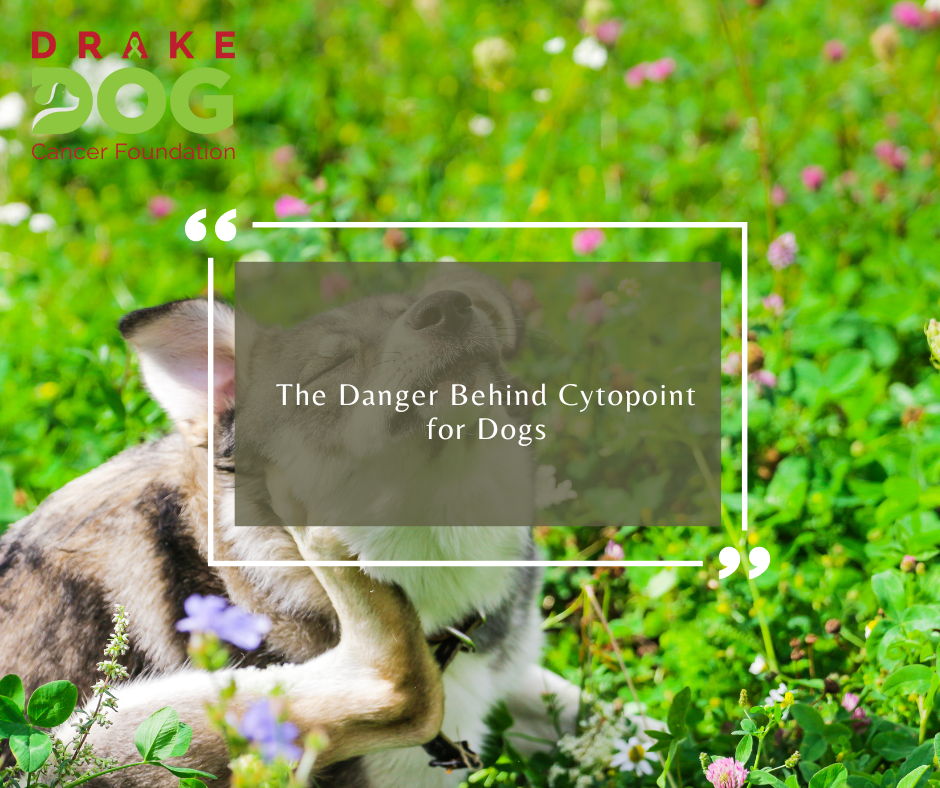The new wonder medication is being touted as Cytopoint for dogs. It is claimed to be extremely safe because it is “not an immunosuppressant” and “not a medication.”
Conventional veterinarians inform their clients of this. And we have a suspicion that the Cytopoint manufacturer and distributor’s representatives are the ones sending out this message.
What Does Cytopoint Do For Dogs?
Cytopoint is a member of a brand-new medication family. Now, the business would vehemently deny that this is a drug. Though it is.
It is a chemical that has been synthetically created and injected into the body with the goal of altering physiology and function. The immune system is its main target. But unlike the majority of medications we are familiar with, cytopoint is not a chemical.
It’s a monoclonal antibody made artificially.
What is an antibody, then? An antibody is a unique protein the body makes in response to toxins or antigens (agents that cause disease, such as viruses, bacteria, or fungi).
Your dog’s body naturally creates a lot of antibodies. When foreign chemicals penetrate the body’s defenses and become inside, they bind to them and render them inactive. It is known as neutralization.
Another function of antibodies is the immunological response. They trigger the complement system, a component of the immune response. Then, bacteria and other pathogens are attacked and killed by the complement system.
How Dogs Get Autoimmune Disease
It’s important to note that autoimmune disease is most frequently caused when your dog’s immune system is so disturbed that antibodies are produced that attack any region of her body. BAD antibodies are those that bind to any typical bodily area.
Whatever the case, it is obvious that natural antibodies are crucial. Cytopoint, however, is an antibody. What determines the difference, then?
Dogs’ Cytopoint is an antibody that binds to and disables a portion of their immune system. Interleukin 31 is a specific substance that is targeted by Cytopoint (IL 31). It is a cytokine, IL 31.
What Are Cytokines?
A family of several small proteins known as cytokines can be found all over the body. Numerous types of cells produce them. These include stromal (connective tissue) cells, fibroblasts, immunological cells, and endothelial cells.
There are numerous distinct cytokines, and they interact with one another in a variety of diverse patterns known as cytokine cascades.
The important thing to remember is that cytokines serve a variety of purposes and have a wide range of effects on your dog’s health. Each cytokine has multiple functions. It is a multipurpose chemical that regulates several physiological processes at various areas throughout the body of your dog.
What about IL 31 then? That is the canine cytokine that Cytopoint targets.
What Interleukin 31 (IL 31) Does
IL 31 is produced by dendritic cells, mast cells, macrophages, and T helper cells. The skin, lung, intestines, and neurological system are its primary areas of action.
Initiating cell-mediated immunity against pathogens is the primary function of IL 31.
This indicates that inhibiting IL 31 can increase your dog’s susceptibility to infectious diseases.
IL 31 controls the red blood cell-producing cells’ homeostasis as well. Additionally, it has a role in the control of connective tissues. Therefore, inhibiting it may promote the onset of conditions like IMHA (immune-mediated hemolytic anemia) and neuro-fascial pain.
The relationship between the immunological and sensory nerve systems is hypothesized to depend on IL 31. It affects the body’s cells’ capacity to divide and proliferate. Therefore, stopping it can lead to immune system dysregulation. Tumor formation and growth could occur as a result.
The body’s IL 31 levels rise when it is out of balance. This contributes to the onset of the atopy’s chronic itch (allergies). And for this reason, the drug industry created the medication.
They reasoned that since giving dogs IL 31 injections made them scratchy, turning off that cytokine (with the monoclonal antibody) would be the safest way to “treat” allergies in dogs. It’s not at all “safe,” though.
Side Effects of Cytopoint for Dogs
Despite what the manufacturer and vets tell you, Cytopoint does have side effects.
“Cytopoint Killed My Dog”
A quick Google search for “Cytopoint killed my dog” will show a large number of dogs suffering severe side effects or adverse reactions shortly after getting Cytopoint.
These reactions occurred shortly after the first dose in some dogs. Others need multiple Cytopoint treatments before issues appeared. There are several reports of dogs passing away. A concerning number of reports of gastrointestinal side effects and mild epilepsy have also been made.
Some dogs respond to treatment well, while others experience greater pain or other health issues. Most concerningly, reports of numerous dogs rapidly acquiring significant autoimmune diseases after receiving treatment. There have been numerous instances of IMHA, a condition with a low likelihood of survival.
What Does Cytopoint Do For Dogs? What Cytopoint Claims
Cytopoint is not an immunosuppressant.
It’s not a general immunosuppressive drug like cortisone (or Apoquel). But it unquestionably reduces the activity of one minor but crucial immunological function. That affects ALL cytokine cascades in which IL 31 is active. As a result, it inhibits one aspect of the immune system while dysregulating the entire system.
Cytopoint is not a pharmaceutical.
It’s an antibody, after all, and if it were produced within the body, it would probably be unhealthy and lead to an autoimmune illness. Cytopoint is synthetically produced, which means it’s not natural. It is a monoclonal antibody pharmaceutical, not a chemical pharmaceutical.
Since it serves the same purpose as all pharmaceuticals, it can then be classified as one. It attempts to “treat” sickness by influencing a small portion of the body’s functions while disregarding the entire system. The underlying imbalance in the body, which is the primary reason, is not addressed.
If your dog was recommended Cytopoint, or is currently on Cytopoint, contact a holistic veterinarian to discuss it further and determine what options are available to heal your dog naturally.
Read more:
